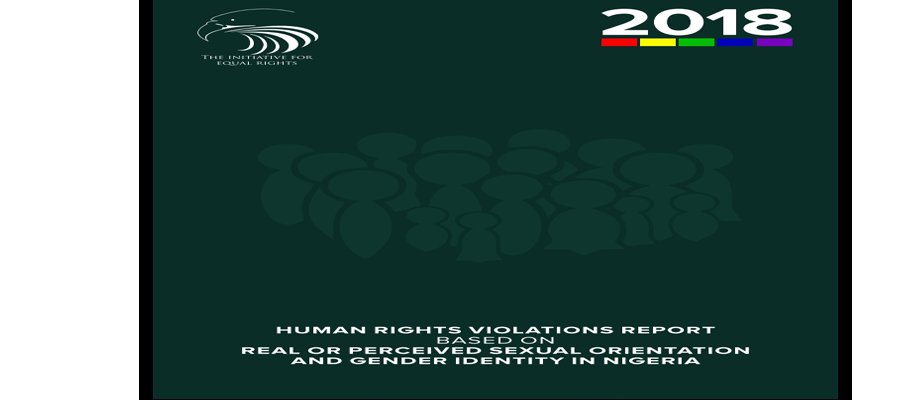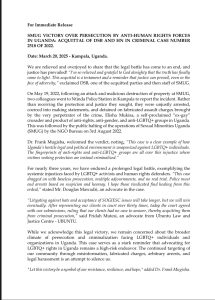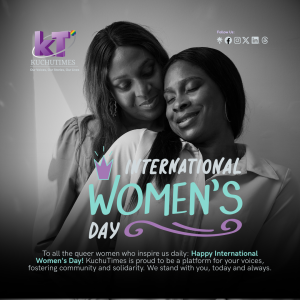The Initiative for Human Rights together with seven other organizations recently released a human rights violation report based on real or perceived sexual orientation and gender identity in Nigeria. The report focuses on the increased brutality and deep rooted bias fueled by segregated social standards and a political plot to shift attention from more pressing issues in Nigeria.
According to the report, the fast approaching presidential elections are not helping the situation as there has been an increased focus on LGBTQ issues with many aspirants tapping into the nation’s inbred homophobia and further spewing hate speech and their intolerance for gender and sexual minorities.
The report also documents the ways in which Nigeria’s legal system has failed the LGBTQ community by endorsing the violations inflicted on them and continuing to deny them their basic human rights. It lists physical attacks, extortion, blackmail, invasion of privacy, arbitrary arrests, and unlawful detention as some of the common trends of violation.
The negative reporting of LGBTQ issues that mainly focus on arrests and unlawful detention has also spiked the homophobia in Nigeria; this report highlights some of the stories that made news in 2018. The overly sensationalized articles include a story on a gay man arrested for rapturing his partner’s rectum and a piece on Nollywood being dominated by gay and lesbian actors.
The people in power i.e. political leaders and clerics are further creating an unsafe environment for LGBTQ identifying individuals by standing by a rhetoric that enforces violence and injustice on the latter. Donald Duke an ex-governor of Cross River State and a 2019 presidential aspirant is quoted as having said, “I don’t understand the emotional feelings a gay person would have towards a person of their sexuality. I don’t understand it but I would not criminalise them. I would ensure that they have the protection of the law but if they exhibit their sexuality then that’s an affront on the current norms of society.”
In a later interview he was quick to switch sides saying, “Recently a statement I made during an interview concerning gay rights and homosexuality has been construed as my affirmation of homosexuality and same sex marriage. Nothing is further from the truth. Homosexuality is a crime in Nigeria and ought to remain so. What I however did say is that I would not go seeking homosexuals for prosecution, as this is liable to abuses and as thus would rather not delve into the sexuality of an individual. For the avoidance of doubt, our law on homosexuality stands intact and in my moral rectitude.” Duke is just one of many and the report goes on to list more examples of state actors and their role in the violation of people’s basic human rights
The 51-page report goes on to tackle the local and international frameworks in relation to the rights of LGBTQ persons, the impacts of the human rights violations on LGBTQ Nigerians as well as recommendations to avert these grave injustices.
The seven organizations that were involved in the compilation of the report include Access to Good Health Initiatives (AGHI), Hope Alive Health Awareness Initiative (HAHAI), Initiative for the Advancement of Humanity (IAH), Women’s Health and Equal Rights Initiative (WHER), International Centre on the Right to Health (ICARH), Initiative for the Advancement of Improved Health and Development (IAIHD) and Improved Male Health (IMH).




